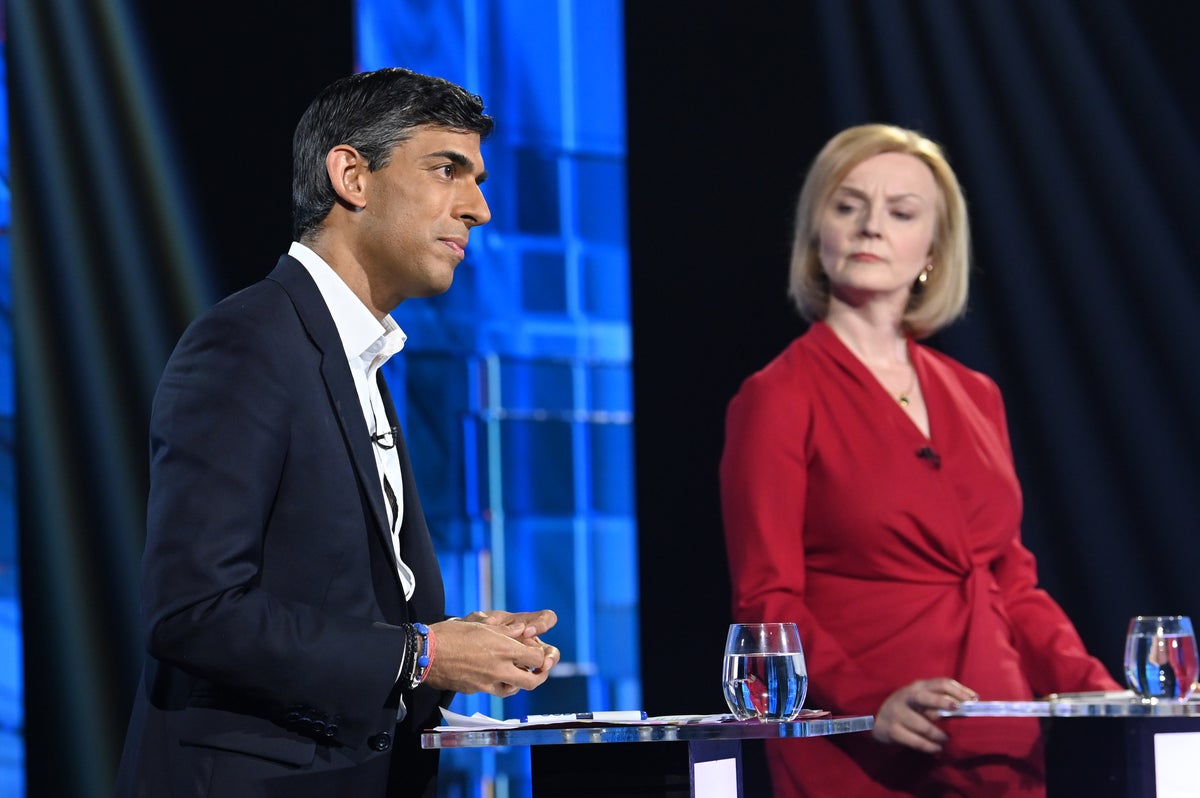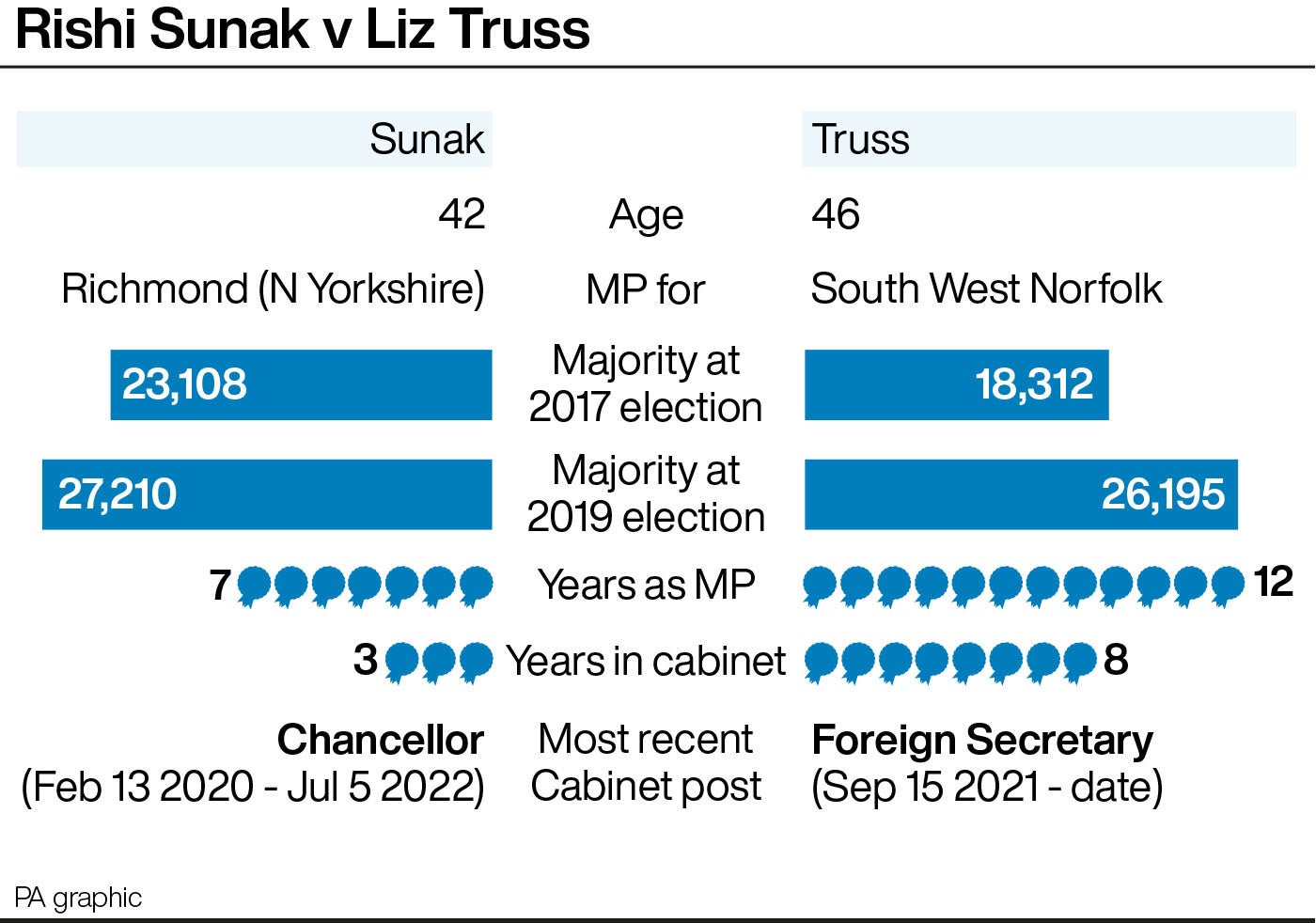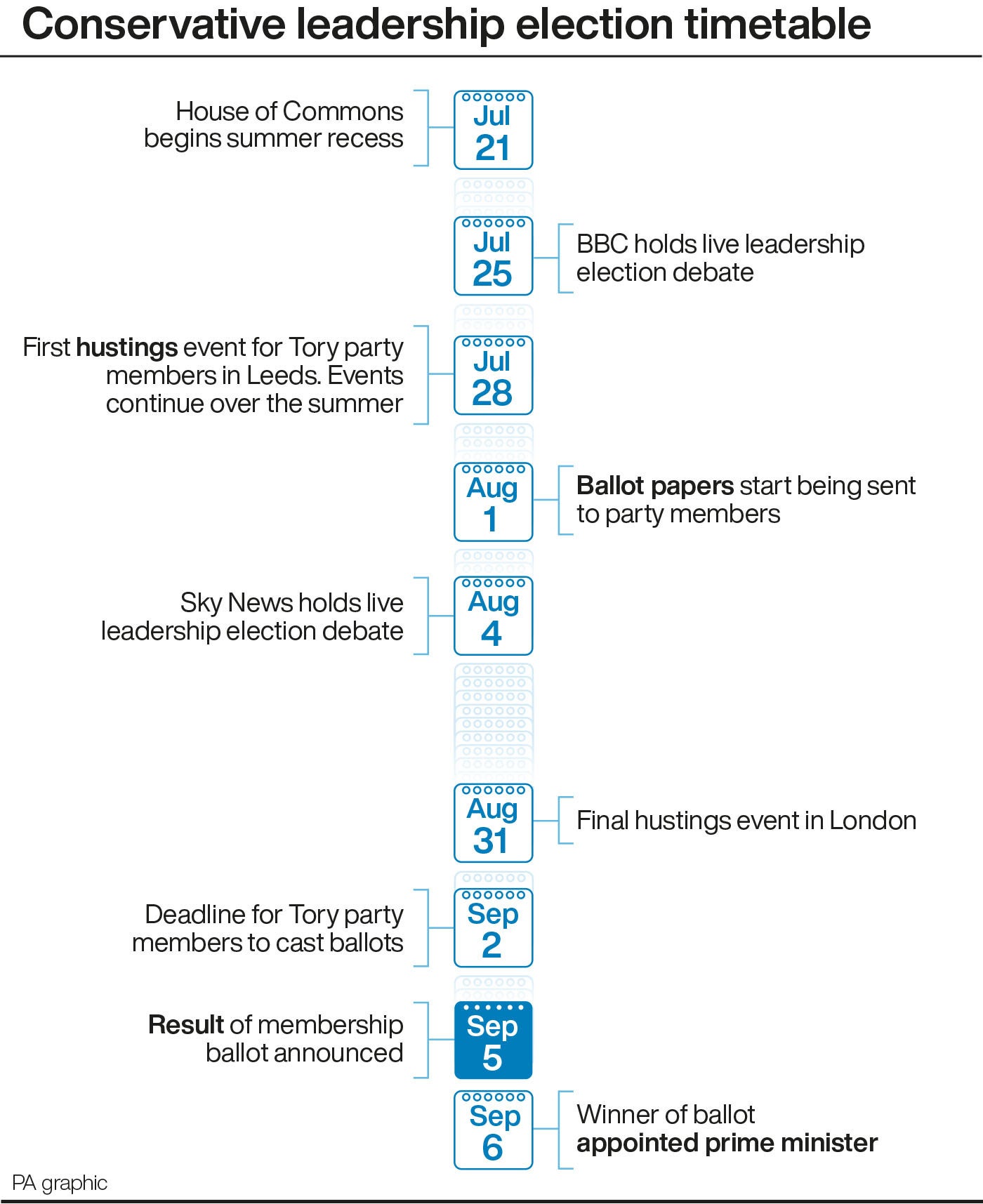
TV debates may be more influential in who wins the Conservative Party leadership contest than newspapers, experts have said.
Rishi Sunak and Liz Truss have set out their stalls in the papers over the past week.
Mr Sunak set out his pitch for the leadership in an exclusive article in the Daily Telegraph on Thursday, where he promised to “deliver the radical set of Thatcherite reforms that will unleash growth and strengthen our society and culture”.
In The Times, coverage highlighted how Mr Sunak has argued he is more likely to win over the electorate than his opponent.
In an exclusive for the Daily Mail, Ms Truss promised to govern as a “true tax-cutting, freedom-loving Conservative”.
Neither candidate has given an exclusive to the BBC.
Some experts have suggested a newspaper’s backing may not be as important in deciding the contest compared with how they perform in broadcast media, which could be an advantage for Mr Sunak.
Tim Bale, politics professor at Queen Mary University London, said it is “undoubtedly true that party members are pretty avid consumers of news compared to most ordinary voters”, but cautioned that newspapers do not ultimately have the power to swing contests, with most party members getting their news from broadcast media.
A survey from his 2019 book exploring newspaper preferences of party members in 2017 suggested only around 10% of Conservative Party members did not read any newspaper.
“Around a third of Conservative Party members say that they read the Telegraph (33% in the poll), and around a fifth (21%) read The Times and just under a fifth (17%) read the Daily Mail,” Prof Bale said.
“It (print media) may sway some party members, but they are no more dupes or sheep than are voters more generally.
“There’s a lot of academic research to suggest the stances of the newspapers don’t make that big a difference in elections more generally.”
He said a “minimal effect” could be expected, but “we are looking at a bunch of people who are very politically interested and therefore perhaps might be more likely to pay attention to stories in newspapers”.
“But if they are to have an effect, it probably won’t come through endorsement – it will just come through the general drip-drip coverage over the next few weeks, and indeed over the last few months, because that builds up narratives about the candidates that may well have an influence.
“So in other words, the fact that, for example, The Times has come out for Rishi Sunak is probably less important than how The Times has covered the chaos of the last few weeks and how it covers the candidates over the next few weeks.”
He added that the Mail is likely to be backing Ms Truss because she is seen as a continuity candidate from Boris Johnson, which fit the paper’s editorial line.
Prof Bale said The Sun’s impact on elections, for example in 1992, had been overstated, and that as only 3% of Tory party members read the paper, according to his research, they would have limited influence.
The Telegraph, with the largest share of party members in its readership, would have most influence, but Prof Bale said he was “sceptical – it’s easy to caricature party members as bug-eyed obsessives, but the fact is, like most of us, most of them will be getting the majority of their news from broadcast rather than from print media”.

This could be a blow to Ms Truss, who acknowledged in one of the debates that she was not the best TV performer.
“If you look at Tory party members, their top priority is winning the next election, so if they see one candidate looking more viable in that respect, partly through his or her ability to perform in front of the camera, then yes, the more exposure Rishi Sunak gets, the better,” Prof Bale said.
Henry Hill, editor of the Conservative Home website, said that for the national newspapers, “it really depends on their ability to set the debate by digging stuff up”.
“To some extent they’ll obviously influence the Tory members who read them, especially the Daily Mail (and) Telegraph.
“And they can contribute to creating a broader positive media environment which is important, because I suspect the candidate who actually wins the contest will be the one who persuades Conservative Party members that they’re a winner, and that they’ll win the next general election, and obviously the mood music from the press is hugely important for creating that impression.”

The alternative influence is that they “dig up dirt” to knock out one of the candidates, he said.
He added that Conservative Home’s survey was “obviously influential early on”, and the site would continue to scrutinise both candidates and run the survey.
“And that might influence members who are looking for a winner,” he said, adding that Tory members would be looking for someone who could win in 2024.
“What our survey does tend to do is shape the media environment… if we find that one or other candidate is ahead, that Rishi Sunak has overtaken Liz Truss, then that will probably shape the dynamic of the entire contest.”
Mr Hill said that as fewer voters or party members read print media from one particular source, it is less likely that a newspaper backing one candidate will sway their view.







